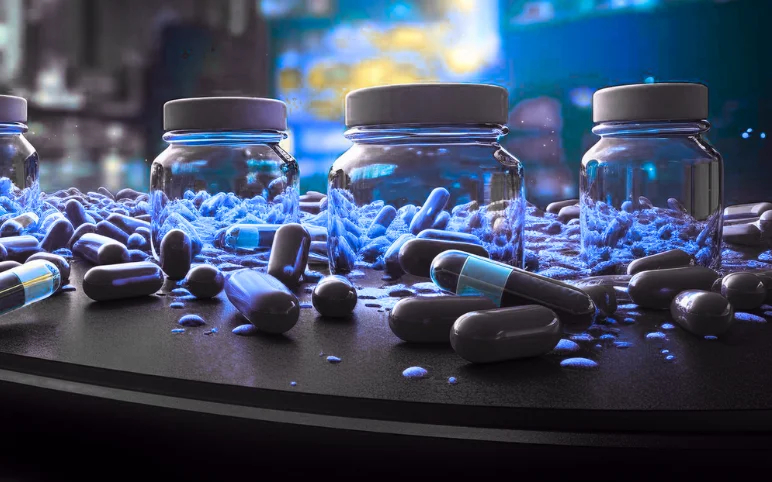Payers block EpiPen; Allergan charged; AbbVie’s Humira; Baxter paying $18M
Jan 27, 2017
Table of Contents
Payers block Kaléo’s expensive EpiPen challenger
Kaléo reintroduced its Auvi-Q last week at a list price of $4,500 for a two-pack in an effort to capture some market share from Mylan’s EpiPen, which is listed at about $600 for a two-pack. Auvi-Q is set to launch next month. Under Kaléo’s pricing strategy, Auvi-Q will cost most patients $0 out-of-pocket. If an insurer refuses to cover the med, the company will step in and pay for that access, execs said last week. Uninsured patients can purchase the drug at a cash price of $360 for a two-pack. Instead, the strategy shifts the costs to insurers and pharmacy benefit managers. At a list price multiples higher than its competition, Kaléo Pharma’s revived Auvi-Q has hit resistance from some of the nation’s top pharmacy benefit managers and insurers. Cigna has said no to the idea, while Humana is not talking to the company and Aetna is restricting its product for now.
FTC settlement clears Endo from pay-for-delay liability; Watson, Allergan charged
According to the FTC complaint, Lidoderm was an important product for Endo back in 2011. That year, the company made $825 million in sales off the lidocaine patch, or 30% of its annual sales haul, meaning generic competition would pose “significant financial risks” to the company. Endo paid Watson at least $250 million to delay that competition, according to the feds. Through an “administrative complaint,” authorities are also going after Impax Laboratories, which they say received $112 million back in 2010 to delay a generic competitor to Endo’s Opana ER. Endo International has pledged to swear off pay-for-delay agreements. But even as the government moves to wrap up its case against Endo, authorities continue to pursue claims against Watson and Allergan.
Downloads
Click Here To Get the Article in PDF
Recent Articles
- Sun Pharma forms partnership; Pfizer and DCRI collaborate; Avara Acquires AZ; ASLAN Pharmaceutica...
- Therapeutics and Celgene to develop therapies; Takeda’s expansion; J&J hopes to limit; Tech ...
- Ethicon’s ETHIZIA Hemostatic Sealing Patch; FDA Approves Medtronic’s Minimally Invasive Device to...
- Fatal French clinical trial failed to check data before raising dose
- Syndax Pharmaceuticals Receives FDA Approval for REVUFORJ; FDA Approves BLENREP for Adults with R...
Amgen hikes prices by single digits, with Enbrel matching AbbVie’s Humira boost
Amgen raised the price of its top-selling med, Enbrel, an 8.4% hike that followed a larger one just six months ago. It also came on the heels of an identical price hike for one of Enbrel’s key competitors, AbbVie’s Humira. Amgen executives say payer discounts will eat up most if not all of its latest hikes. The move follows a 28% increase for the anti-TNF blockbuster in 2015 and another boost of 9.9% in July 2016. During Amgen’s third-quarter 2016 conference call, commercial operations head Anthony Hooper said the company expects “relatively little benefit” on Amgen price changes in 2017 due to competitive payer negotiations.
Baxter paying $18M to settle federal case over sterile plant failings
Ignoring issues in a sterile manufacturing plant can lead to big problems, like FDA warning letters, which Baxter International received for a plant in North Carolina after mold was found in HEPA filters. But in rare cases, it can lead to even more severe penalties, like the $18 million-plus Baxter will pay to resolve a federal criminal case, as well as a civil matter brought by a whistleblower over the mold concerns. Baxter will pay another $2.158 million to resolve a civil whistleblower case brought by Baxter employee Christopher Wall who had reported to the mold problem to plant management. Wall’s case alleged his concerns were overlooked and the plant continued to manufacture and sell product from the facility. Wall gets $431,535.99 as his share of the settlement.
Downloads
Article in PDF
Recent Articles
- Immutep’ First-Line Treatment Positive Outcomes; Pfizer’s Once-Daily Oral GLP-1 Agonist Danuglipr...
- Ipsen’s Cabometyx Rejected by NICE; Vertex and CRISPR Therapeutics’s Submit BLA to the FDA for ex...
- Monteris Smallest Brain Laser Probe Launch; Vesica Health’s AssureMDx Test Launch; Anaut’s Eureka...
- Aminex Therapeutics Secures FDA Orphan Drug Designation for AMXT 1501 + DFMO in Neuroblastoma; Ec...
- KINECT 4 Study; KindredBio Announces Results; Mylan and Aspen’s Launch; EMA investigates; Amgen’s...




